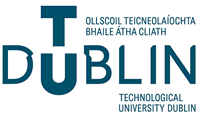Dr F Boyle
No more applications being accepted
Funded PhD Project (Students Worldwide)
About the Project
Blood consists of liquid plasma in which three types of cellular element are suspended: red blood cells (RBCs), white blood cells and platelets. RBCs are the most abundant, accounting for 99% of all suspended cellular elements. Computational fluid dynamics (CFD) numerical modelling is routinely employed in the design of cardiovascular-system medical devices. In this modelling blood is always treated as a continuum fluid, e.g. like water, and the cellular elements are omitted. This omission has been tolerated to date but has contributed to sub-optimal medical device design and detrimental consequences, e.g. coronary stent restenosis and prosthetic heart valve thrombosis.
The aim of this project is to develop a CFD software tool for numerically predicting medical device haemodynamics where blood is treated as a heterogeneous fluid, specifically a RBC-containing plasma. This development is now possible due to the level of understanding that exists of RBC structural behaviour, the improvements in CFD algorithms over the past several years, and the massive computing potential of recently introduced general-purpose graphical processing units. Such a tool will lead to a step change in the accuracy of medical-device haemodynamic analyses, improved medical device design and performance, improved patient clinical outcomes, and reduced healthcare system costs.
The ideal candidate will have a first class honours degree in Mechanical or Biomedical Engineering and will have a strong interest in medical device design and bio-fluid dynamics. The ideal candidate will also have a strong interest in, and aptitude for, numerical simulation and in particular for the programming of numerical methods and software development.
Funding Notes
The scholarship will include an annual student stipend of €16,000 per annum and all registration fees covered for 4 years.

 Continue with Facebook
Continue with Facebook

